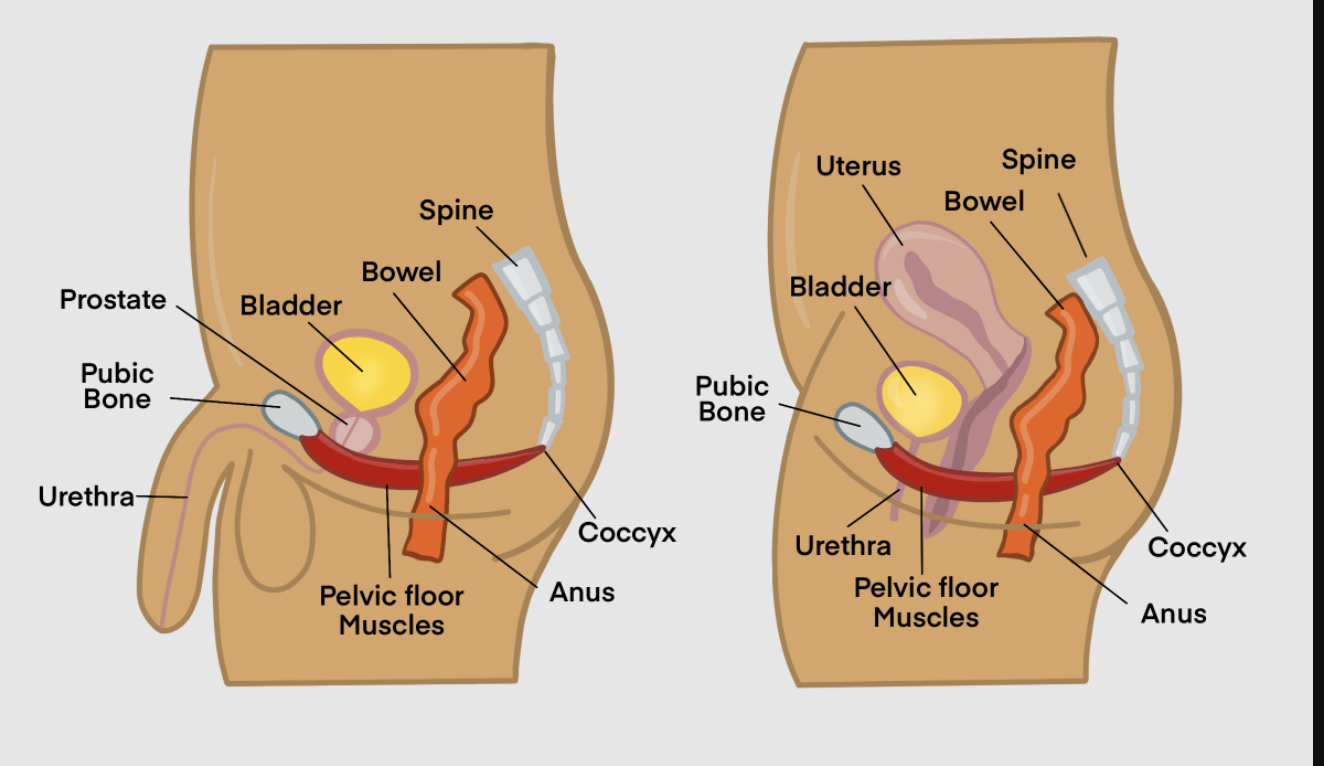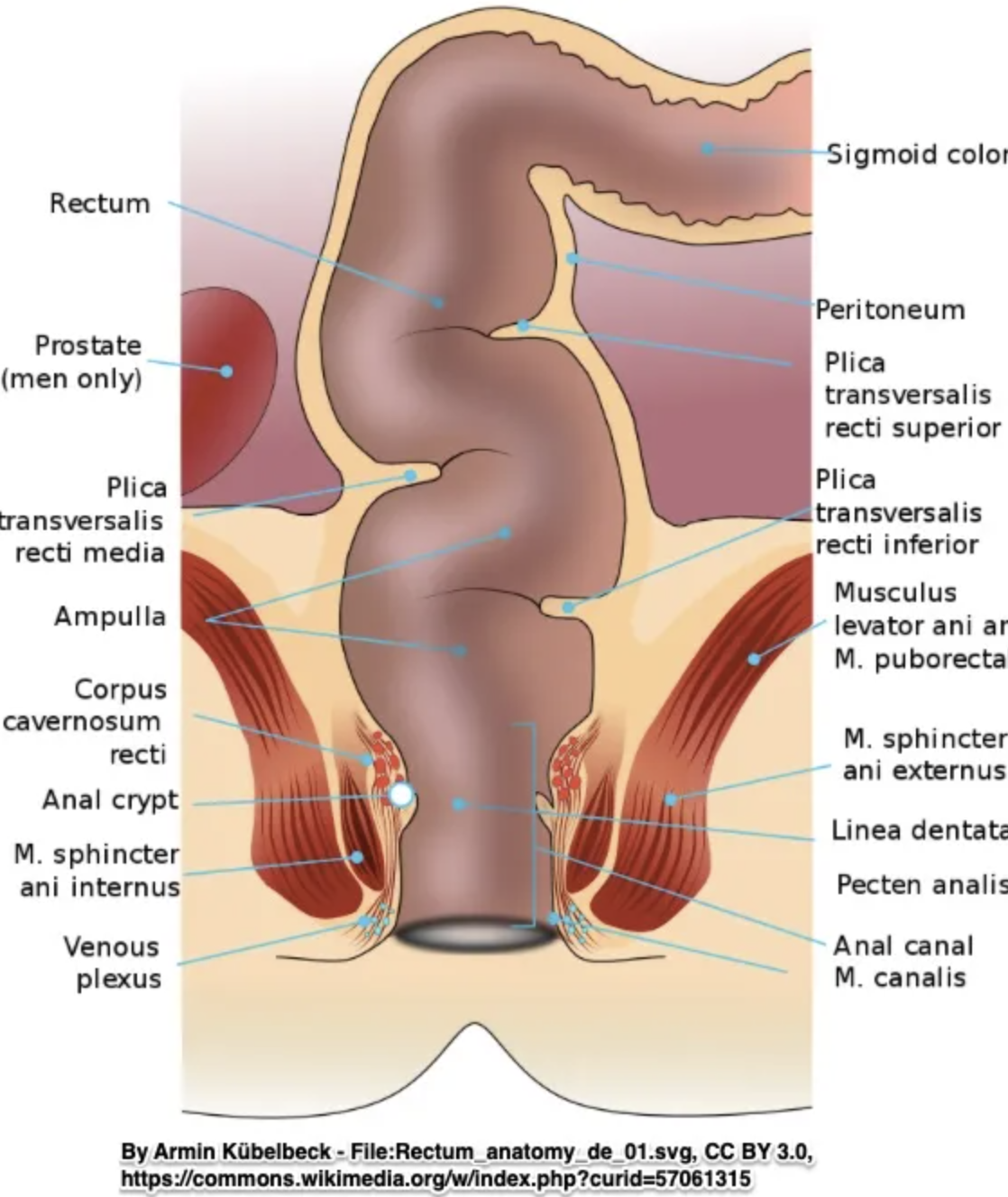6 Tricky Problems Caused By Constipation
Every time I meet a new patient, I ask them about their pooping. Sometimes this throws people off, and they'll say "...but...I'm here for my shoulder" LOL jk, jk-- I don't treat people who have primary shoulder problems. Remember, pelvic floor problems are my jam! BUT, even when people have a "pelvic" problem (and I put it in quotes, because while I saw I specialize in the pelvis, the reality is that the pelvis is in the body so the whole body can impact the pelvis), they can struggle to see the connection between their bowel movements and their bladder leaks, painful sex, low back pain, prolapse-- and more! The reality, however, is that what is happening with your bowel movements is ABSOLUTELY important for any pelvic problem we see. And, this is especially the case if someone struggles with constipation.
Why does constipation matter for pelvic health?
The reality is that the pelvis is not as big as you'd think. A full rectum that isn't emptying well can press on the other structures around it (including the bladder and vagina, pelvic floor muscles and nerves around the pelvis) and can also stretch to an uncomfortable level and refer to the low back. Hard, dehydrated stool is also more difficult to empty, and can require more effort, placing increased pressure on the organs in the pelvis and the pelvic floor muscles themselves.
6 Tricky Things that Can Actually Be Caused or Worsened By Constipation
This is where things get interesting. Because of how close everything is, and how intricately the muscles are connected to defecation, people are often shocked at the things their bowel movements can be involved with. Let's look at a few:
1. Pelvic or Tailbone Pain
That's right! Constipation can lead to worsening pelvic pain, or even be a primary cause to begin with. There are several reasons for this. First, when stool is in the rectum, it will put pressure on the puborectalis muscle, whose job it is to maintain the angle between the rectum and the anal canal, preventing leakage, and opening to allow for defecation. Typically, if the rectum fills, this will trigger a sampling response where literally your rectum allows a small amount of contents into the anal canal to determine-- solid, liquid or gas? Then, it will trigger a reflex to facilitate defecation. If someone has harder stool with less forming together, they may not empty their bowels well, leading to stretching of the rectum. This will put pressure on the puborectalis muscle, which then can lead to increased muscle activation (hey, there's more stool to hold back!), and ultimately, muscle irritation and overactivity. Pelvic floor muscle overactivity can lead to pain around the pelvis and into the tailbone and sacrum. And it's a tricky cycle, because overactive muscles don't stretch as well, making it harder to have a bowel movement, and the harder it is, the more the muscles become irritated.
2. Pelvic Organ Prolapse
Prolapse occurs when there is a loss of support around the walls of the vagina and an organ (the bladder, rectum, small intestines or uterus) protrudes into the vagina. It can be very annoying and uncomfortable, and can lead to a feeling of a bulge in the vagina, heaviness in the pelvis, or pressure into the perineum or pelvis. Pregnancy and childbirth can be a big factor with prolapse due to a loss of connective tissue or fascial support, however, increased pressures on the pelvic floor over time can also play a role. I've seen this happen for people who worked in jobs that required extensive heavy lifting, when people are doing exercises that their bodies cannot really do well, and, yep-- in cases of long-term constipation. Constipation leads to increased pressure on the pelvic floor and more effort required for emptying. So, when a person is constipated and has to strain more to empty, this can weaken the support around the vagina, and can ultimately be a big factor for people with prolapse. And the great thing-- when we help this to improve, usually we'll see the prolapse symptoms get better too!
3. Painful Sex
Similarly to pelvic pain, overactivity in the pelvic floor muscles can be very involved when a person is dealing with pain during sex. Additionally, if their rectum is staying full with stool, this will put pressure on the vagina and decrease the space allowed for the vagina to stretch with insertion. So, you guessed it, optimizing constipation can make a difference for people having pain with sex.
4. Low Back Pain
This one is very interesting! We already talked about how the pelvic floor muscles can become overactive if someone is dealing with constipation, and of course, this can be a factor with low back pain. However, the colon itself can also become very stretched when stool is backed up, and this will refer into the low back. This is surprisingly more common than you would think! I've seen many people dealing with long-term back pain that noticed a significant change (if not a cure!) by optimizing their bowel health. And this makes sense when we think about how organs can often refer to somatic structures around the body (Remember how a heart attack can present as shoulder pain? Kidney stones as low back pain?).
5. Pudendal Neuralgia
I had to include PN in this group! The pudendal nerve runs through the pelvis so sits in very close proximity to the rectum. When a person strains and has difficulty emptying the bowels, this nerve can be stretched and irritated. Long term constipation can cause a person to develop pudendal nerve irritation, and if a person has pudendal nerve problems already (from an injury during surgery, cycling irritation, childbirth, or other), constipation will absolutely worsen their pain levels.
6 Bladder Leakage
This one is always harder for people to grasp. Yes, constipation could be the reason you are leaking or it could be making your leakage much worse! This can happen for a few reasons. First, the pelvis is not that big. So, a full rectum could be pressing on the bladder putting it into a position where it is more likely to leak. Additionally, remember how the muscles get involved with constipation? Well, they're important for the bladder as well! Overactive and irritated muscles do not work as well for the bladder so can often struggle with holding back urine.
So, what can you do if you're struggling with constipation?
First, realize that you're not alone. Constipation is the #1 GI complaint in the US for a reason, and there is SO much that can be done to improve this! So, don't just deal with it. Don't write it off as something "you've always dealt with" or something "that runs in my family" or anything else. Take steps today to help your body poop better, and I promise you-- your world will be a happier place.
If you're able, I would STRONGLY recommend my mini-course on overcoming constipation. In this class, Dr. Sara Reardon and I give you all of our big tips to help you poop better, and for $39 you can't beat the value you'll get in this class!
Check out these other articles I've written on pooping (yep, I write about poop a lot!) and hopefully this helps you get started!
Building a Stellar Bowel Routine
Dyssynergic Defecation (or When the Poop Won't Come Out)
Happy Pooping!
~ Dr. Jessica



